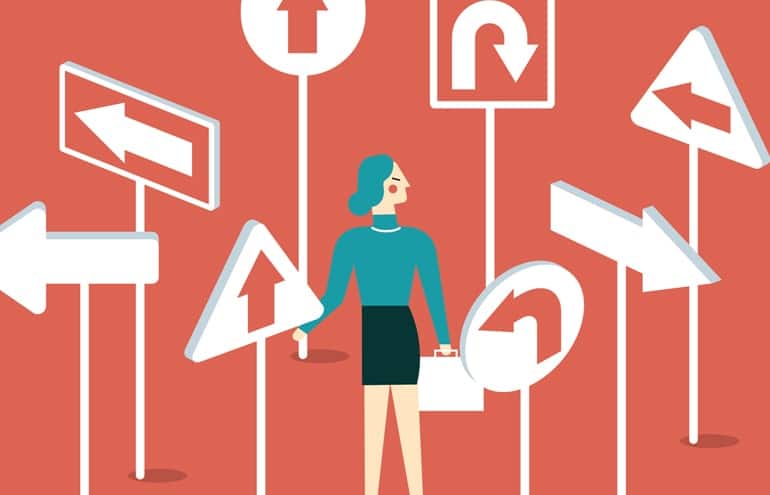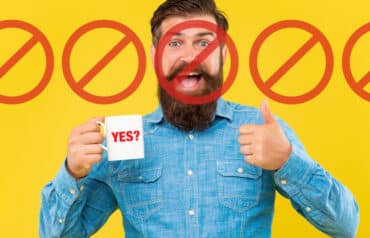The neuroscience behind implicit bias confirms that the unconscious has a great deal to do with our conscious experience of reality.

Table of contents
Implicit bias is a psychological term that attempts to describe the unconscious prejudices and stereotypes we form without awareness. It is human nature to have these unknown biases, whether we want to admit it or not.
We form biases owing to our education, experience, culture and history. Our minds form biases based on unconscious associations over time, intentionally or unintentionally. Ironically, the more intelligent one is, the higher the likelihood that you have implicit bias.
Implicit Bias in the Legal Profession
Various studies have identified implicit bias in the legal world as it relates to:
- Hiring, promotion, pay and responsibilities as these concepts are affected by gender, race, appearance, age and sexual preferences
- Jury selection
- Client representation
- Relationships
Science explains that our minds are like icebergs, with our conscious awareness represented by the 10% of the iceberg above the water’s surface, and our unconscious represented by the 90% of the iceberg below the surface. We are not aware of the 90% of our mind that is unconscious (by definition).
The Implicit Association Test, developed by psychologist Tony Greenwald and available online, aims to reveal information about implicit bias. It demonstrates that our concepts of “good/bad,” “right/wrong” and “like/dislike” are the result of implicit bias — and that no one is free from bias.
As we become more familiar with the fact that a large part of our minds is unknown to us, we become more aware of the indirect effects of our unconscious on our conscious minds. More specifically, when the conscious mind conflicts with our unconscious mind, the higher the chances of our having anxiety, stress and, ultimately, burnout.
For example, if we consciously seek success but unconsciously believe we don’t deserve it, we become stressed.
What Does Implicit Bias Have to Do With Attorney Burnout?
When coaching individuals who are experiencing burnout, stress, anxiety or depression, I often find unconscious traumas, beliefs, decisions, emotions or thoughts that conflict with their goals and expectations. Willpower and determination only make the conflict worse. Like struggling in quicksand, white knuckles and clenched jaws only make the struggle with hidden blocks more intense and lethal. Clients describe the effect metaphorically as like driving a car with one foot fully on the gas pedal and the other fully on the brake pedal. Their wheels are spinning and yet they are not going anywhere. They feel stuck.
To get past these conflicts, there are numerous ways to discover implicit bias. Here are five:
- Make a chart of personal likes and dislikes. How you decide which column to put items is probably a result of implicit bias.
- Make a list of what you believe. Then ask yourself, “Why do I believe that? When did I decide that was true? What if it wasn’t true?”
- List the negative emotions you experience daily. They could include fear, sadness, anger, guilt, shame, terror, depression, rage, hate, jealousy, lust or disgust. Then list what you were thinking immediately before you felt the emotion. That thought probably was the conscious manifestation of an implicit bias.
- When you consider what you don’t like about your life, identify what beliefs you would have to change to improve your life. Any resistance to changing your beliefs would come from implicit bias.
- Look at what you want in life and consider these are based on implicit bias. Even Maslow’s Hierarchy of Human Needs is based on implicit bias.
Common Unconscious Biases
The neuroscience behind implicit bias confirms that the unconscious has a great deal to do with our conscious experience of reality. Here are some common hidden, unconscious biases (decisions) I encounter:
- I am a fraud.
- I don’t deserve to succeed.
- Work/life is hard.
- I am a victim.
- You must work hard and sacrifice to be successful.
- Relationships are painful.
- Making it to the top is for other people.
- Other people are lucky, not me.
- I am not good enough.
- I should be ashamed.
If you say these things to yourself, notice your body’s reaction to the statement. Does it feel correct or is it a lie? Your conscious mind can’t tell you. You can only discern the effects of these biases through behavior and physical and emotional symptoms.
Discovering Your Implicit Biases
If you are exhibiting the symptoms of stress, you may have implicit biases that are conflicting with your conscious desires.
Another way of detecting implicit bias is through how you perceive the world. The world you see reflects your inner thoughts, emotions and beliefs.
In other words, you see what you look for — and we are always looking for evidence that our beliefs are correct.
So if you believe you are not good enough, you will focus on evidence that you don’t measure up. Despite evidence to the contrary, you will unconsciously associate with people who will confirm you are defective.
Once you become aware of your implicit biases, you can decide whether to change. Until then, in many ways, you are controlled by these biases. Change is possible. Finding your implicit biases is the key.
Illustration ©iStockPhoto.com
Also on Attorney at Work:
“Attorney Burnout: 4 Traps to Avoid” by Gray Robinson
“How Missing These 5 ‘Little’ Things Adds to Your Stress” by Jamie Spannhake
“Survival Skill 2 for Lawyers: Dealing With Chronic Stress” by Link Christin
Subscribe to Attorney at Work
Get really good ideas every day for your law practice: Subscribe to the Daily Dispatch (it’s free). Follow us on Twitter @attnyatwork.






















